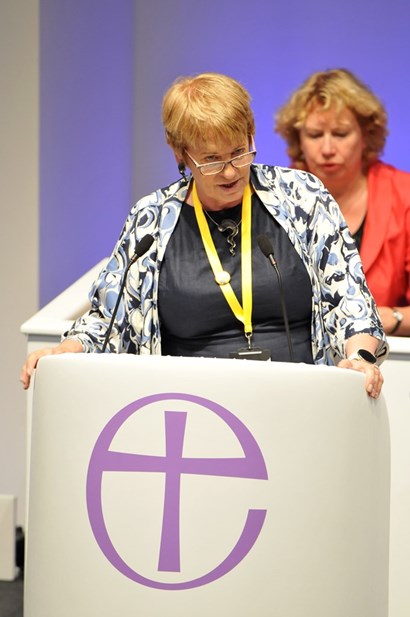
I have many times referred to the desire among conservative Christians to find complete reliability in their interaction with Holy Scripture. Through the medium of preaching, the ‘clear teaching’ of God can be shared among the faithful as they gather for worship in churches around the world. There is, however, only one actual place where God’s teaching seems to be totally transparent and clear. That is inside the mind of the authoritative preacher. Within the preacher’s brain, all the difficulties in the text seem to be resolved and tidied up. Outside the preacher’s head, there is another world. This is the place where conscientious students of Scripture struggle with the challenge of detailed examination of the Bible. In this world there are many difficulties and problems to be wrestled with and clear answers are not always to be found. I am not now going to say more on the numerous problems that arise when a preacher claims perfect consistency and reliability for the Bible. My purpose in this blog piece is to introduce a fresh concept which I have just encountered. This concept can, I believe, help us to have a realistic and more profound appreciation of Holy Scripture. The idea I want to share is what I call reverse translation. In simple terms we are attempting to read the Bible as far as we can by understanding the thought forms and words of those who authored Scripture. Through this exercise we may find we have greater awareness of some of the critical issues around the study of Scripture. We can also find through it a sense of hope and a strengthening for our faith, as we get a little closer to those who wrote the Bible.
I want, first, to emphasise a preoccupation of mine about the importance of words and their correct interpretation in any serious study of the Bible. It is sometimes important to spend a fair amount of time on a key word to extract its full meaning. Those of us who have knowledge of a foreign language know how difficult it can be to find the exact equivalent in English for a foreign word. This also may be true when we speak the same language as the other person. Their cultural background may be different from our own and they can use words in a different way from us. The same problem exists in a pronounced way when we try to understand texts that were written two thousand or more years ago. I am not going to claim that every Christian needs to learn Greek and Hebrew. But I would suggest that all those who teach from a pulpit need to have some awareness of these languages and the way they function. Quite often the pronouncement that Scripture is clear and straightforward is not what any of the commentaries are claiming. A little humility needs to be exercised as well as self-knowledge if Scripture is not to be used a means of self-aggrandisement. Another trap that some preachers fall into is to weaponize Scripture. What is delivered from the pulpit is not an exposition of God’s will, but a parade of their human prejudice, wrapped up in carefully chosen words taken from Scripture. The words are frequently wrenched from their context and because of this they lose much of their original meaning.
In common with many theological students of my generation, I had to have a reasonable grounding in New Testament Greek. I did also take some instruction in Hebrew but gave that up before the end of my undergraduate studies. I make no claims of expertise here, but I am aware of the many problems that face us if we always claim to have a totally reliable translation of an Old or New Testament passage. The more one is exposed to these original languages, the greater is a reluctance to use words like infallible to describe Scripture. I remember a day in my Hebrew class when the teacher admitted that the translation of one particular Hebrew word was a matter of guesswork. Somewhere in the distant past, the understanding of the meaning of this word, even among Jewish scholars, had been lost.
The problems of engaging with ancient texts is not a way of saying that we must learn these languages for ourselves. What we can do is to be aware that there are many scriptural words in English which have a quite different feel when we engage in a reverse translation. While most English translations of biblical words and ideas may be fairly accurate, this does not mean that we should be unaware or uninterested in the wider context or framework of understanding that was in operation for the original writer. It is sometimes helpful to consult a variety of English translations. This will help us to see that the work of translation is sometimes a matter of conveying the sense of an entire passage rather than just the meaning of individual words. To focus on individual words in Scripture can, however, be helpful. As I have said in earlier blogs, Hebrew words often contain a range of meanings rather than a single English equivalent. The simplest best-known example of this is in the word commonly used greeting word in modern Hebrew – Shalom. The word can convey a whole range of positive experiences that we wish for the one whom we are greeting. It contains the idea of peace, prosperity, reconciliation and wholeness. Even from this single example, it is clear that the Hebrew language treats words in a somewhat different way to English. Words are used not so much as a way of defining meaning, but rather as a way of clustering together and evoking meanings.
In the small ecumenical study group that I belong to, we have decided, at my suggestion, to look at the Lord’s Prayer and try to do a reverse translation to the version given in the Aramaic New Testament, known as the Peshitta. This version will be very close to the actual words that Jesus himself used. Aramaic was his likely first language and was used by him for teaching. Nobody is expecting to become knowledgeable in this language but the wrestling with individual words and using the insights of commentators and what they can tell us about their meaning, will help us to hear something new in the prayer. In short, reverse translation may be a means of obtaining a new appreciation of the way that familiar words can be appropriated and understood in a completely fresh manner.
What might this exercise in glimpsing the words and meanings of an ancient biblical worldview achieve? Looking at the Aramaic words which, like Hebrew, evoke meaning and experience, will make us all, hopefully, a little more reluctant to claim that we have the meaning of any text completely sorted. Allowing ourselves to be exposed to the thinking and feeling of a completely different culture is itself a lesson in a new and fresh way of humbly apprehending truth. We have already suggested that English does not have a single word to translate shalom. Similarly, the Lord’s Prayer, when encountered through the words used by the Aramaic New Testament is going to have a different feeling about it. To repeat, words in Hebrew evoke meaning. It is therefore wrong to suggest that in this exercise of reverse translation we will arrive at the kinds of defined meanings that would justify the adjectives infallible or inerrant. Reverse translation takes us further away from such ideas. Theories of Scripture being without error have an 18th century flavour. They certainly have little to do with the thought world of the Bible.
I was speaking to someone who said that he had been recently released from what he described as the fundamentalist horror of his upbringing. He realised now that truth was not something that was handed to him from an authoritative controlling preacher but was result of personal discovery and growth. He knew that, now he had abandoned the same reliable but narrow teaching of his conservative evangelical background, his understandings would be untidy. Although his past beliefs had offered him safety, they came with the intolerable additional burden of constant fear. Somehow uncertainty was a price worth paying for the complete release from this fear that had haunted him since childhood. In short, he recognised that the God, now revealing himself to him as compassion and love, was not the same one who had terrified him most of his life. I encouraged him in the thought that while we cannot expect to have all the answers in this lifetime, there are always enough hints of truth and goodness around us to guide us into a place of shalom in all of its manifestations.
Surviving Church has now been going for almost 10 years and I am contemplating soon laying down my pen, so to speak and to focus on other things. The world of church politics is not a place where I feel comfortable and I have probably said most of what I can usefully say about abuse, safeguarding, church bullying and narcissism among church leaders. Even if the number of posts I put up here becomes fewer, I will still be available for email correspondence with those who wish to engage with me on the issues which have preoccupied me for almost 30 years. One of the welcome by-products of writing this blog has been the communication with a variety of strangers. They have shared experience and queries and I have tried to answer these to the best of my ability. I am very happy to continue such communication as long as it is required.


